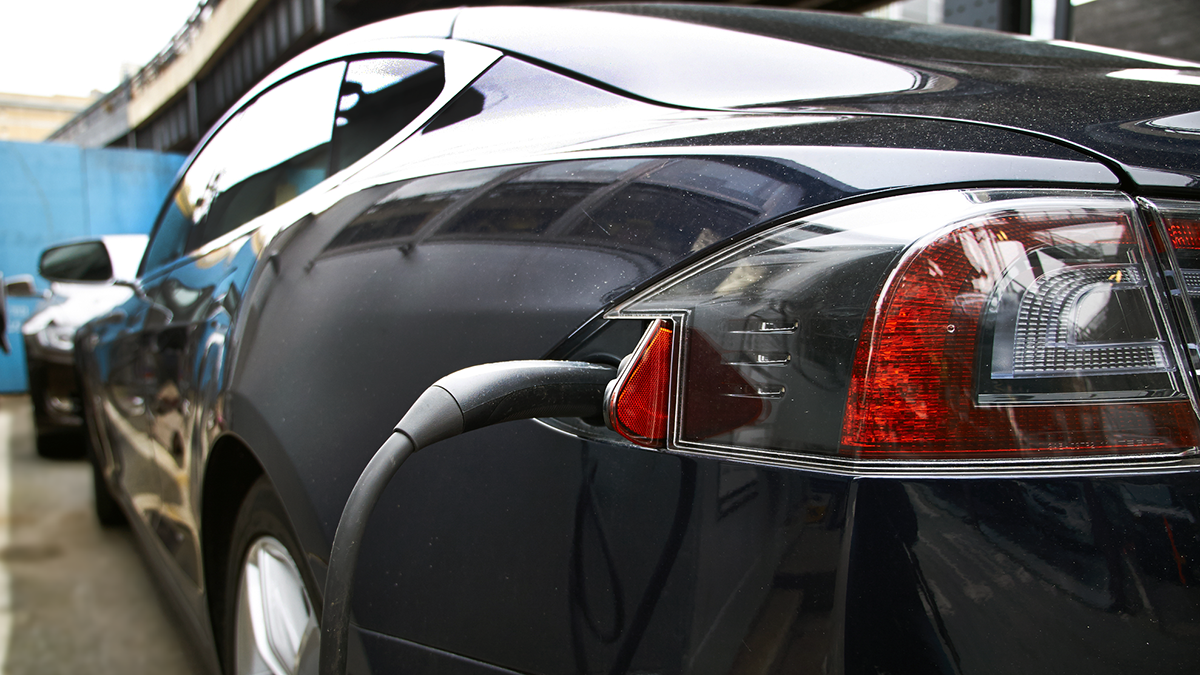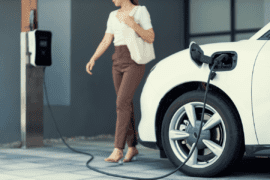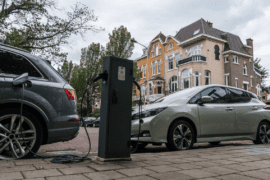The allure of EV ownership isn’t lost upon car enthusiasts: why pay for gas ever again if you don’t have to, especially if new EVs can match or outperform other vehicles? From the release of the Roadster in February of 2008, Tesla has come a long way with the introduction of the Model S, Model 3, Model X, the recent release of the Tesla Cybertruck, and there’s more comin’. If you’re not sure which Tesla model is right for you, read this.
Their infrastructure has been severely upgraded as well since they first started rolling cars off the production line. In 2013, Tesla had six Supercharger stations in California, and two on the East Coast. As of now, there are over 1,500 nationwide, and that number keeps climbing. As the electric car industry grows and EVs are more readily available to consumers the options surrounding their purchase become more varied as well: more used and salvage vehicles are flooding the market.
There are some pretty valid concerns surrounding buying a used or salvage Tesla ranging from charging issues to repair costs, but they don’t have to be deal-breakers. Here are five things to know before looking for a salvage or used Tesla for sale.
1. Range anxiety doesn’t have to be a deal breaker.
This isn’t a crazy concept, since anybody with a gas engine already worries about fuel running out, but the issue is availability of charging stations. Since they aren’t always around (like basically anywhere in Nebraska that isn’t on the border among other places), you’ll need to plan your route based on availability if you’re going on an extended trip. Newer Tesla models have ranges of 300+ miles, so for a lot of us that wouldn’t be an issue. If you live out in the middle of nowhere, though, you may need to factor that into lengthier outings when you don’t have a home base to charge your Tesla at.
While Tesla is constantly improving its charging infrastructure, it’s an important thing to keep in mind if you’re planning on driving for long stretches away from your home charger. For most people who don’t travel great distances on a regular basis, this is a non-issue.
2. Electricity bills won’t be as bad as you think.
Depending on where you live, this varies and is heavily dependent on what time you’re charging your vehicle. Charging during peak hours is obviously more expensive, but according to Solarreviews.com, the average cost to ‘fill up’ your Tesla is around $15 bucks. At the time this article was written, the national average price for a gallon of gas was $2.59. Let’s say, for comparison purposes, that smaller cars typically have 12 gallon tanks. So you’re looking at an average of $31.08 to fill up with gasoline. Further, time is money, right? Why go out of your way to fill up at a gas station when you can just charge your Tesla after you’re already home. Bam. More savings.
3. Repairs can be costly, but you have options.
If you don’t know how to repair a Tesla on your own or have access to parts, repairs may be difficult. Particularly if you don’t live near a Tesla certified repair shop, getting the car there and back may cost more than you’re interested in spending before repairs even start.
Since Tesla certified repair centers aren’t exactly a dime a dozen, it can also take a pretty long time to get the repairs done after you get the car there in the first place. There have been reports of Tesla service centers being pretty backed up – so, take this opportunity to learn how to fix your own ride?
The offset here lies in the savings of buying a salvage title Tesla in the first place. According to a brief glance at our bidding history, Salvage Teslas at online auctions can go for as low as a quarter of their MSRP. Even with relatively low miles and in need of minimal repairs. So while Tesla repairs are costly in nature, the savings actuated from buying a salvage Tesla at auction will significantly offset the repair costs.
Another alternative to explore is sourcing used parts from Ebay, or another salvage Tesla. If you find something that’s in pretty bad shape in an area that your salvage Tesla isn’t, you can use the parts from it to perform your rebuild and sell whatever else is leftover to recoup some of your costs.
4. Get the Tesla Charger.
While the option is available, using a regular household outlet (110v) can take an incredibly long time to charge your vehicle, typically at a rate of two to four miles of range per hour you spend charging, depending on the model.
A much better option is installing Tesla’s Wall Connector, and when that’s paired with a 100 amp circuit breaker it can deliver up to 44 miles per hour of charge. Just keep in mind that having the charger itself installed can upwards of $1,000, so keep that in mind when factoring your budget.
Another option to consider is the introduction of solar panels, and those carry their own set of expenses. All things said and done, though, you’ll save a boat-load (or Tesla-load in this case) of money in the long run if you’re looking at charger installation and electricity consumption vs gasoline. Check out point number three.
5. Tax credits for electric vehicles won’t apply, but don’t worry
A major incentive in the United States for the purchase of new EVs is the federal tax credit, but, long story short: they don’t apply to used cars. Not just regarding used Teslas, but any used EV won’t have the benefit of the federal tax credit. The good news is that this is factored into the resale value of a used EV, so the final sale price will more than likely take that into mind in relation to the vehicle’s MSRP.
Buying a used or salvage Tesla doesn’t have to be difficult
Hopefully, we’ve alleviated some of the fears you may have had about buying a used Tesla through online auction. Since the MSRP of brand new Teslas is often cost prohibitive, a used or salvage Tesla can be the way to go to break into high-performance EV ownership. So start browsing through our salvage and used Tesla inventory and find the perfect electric car to start saving on gas, and reducing your carbon footprint while you’re at it.
We always recommend getting a ClearVIN VIN Check Report before placing a bid. A car VIN lookup is an essential step in the car buying process, as it can uncover potential issues that may not be immediately apparent.
If you have any questions about registration or bidding with AutoBidMaster.com, or any of the vehicles listed on our site, feel free to give us a call at +1 (503) 298-4300 or email support@AutoBidMaster.com. We’re here to help!
- JK Auto Import: An AutoBidMaster and Copart Success Story - January 24, 2024
- 5 Frequently Replaced Car Parts You Can Salvage from Junk Cars - October 16, 2023
- Top Muscle Cars for Your Next Restoration Project - October 9, 2023






